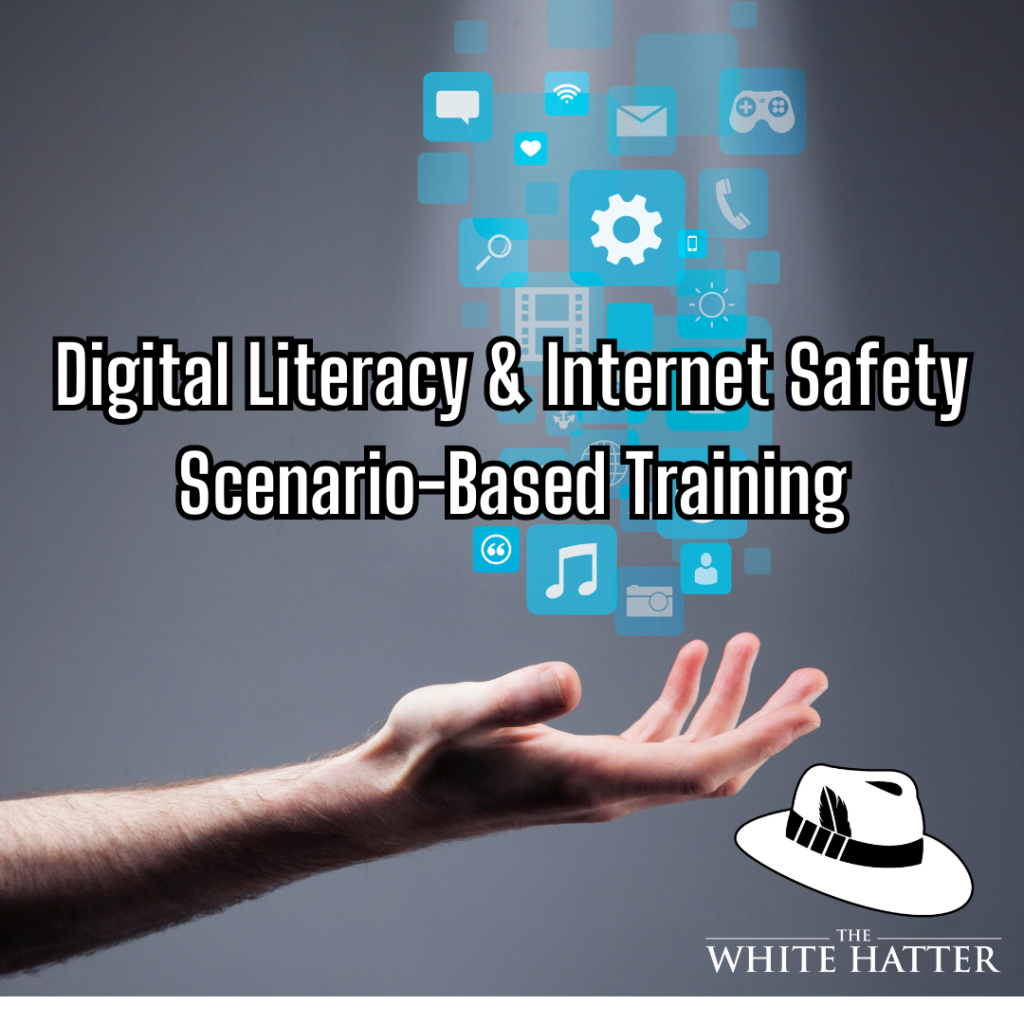From Theory to Practice: Engaging Kids in Digital Literacy & Internet Safety Scenario-Based Training
- The White Hatter

- Jul 25, 2024
- 4 min read
Updated: May 8

In today's onlife world, ensuring that our children are digitally literate goes beyond traditional, lecture-based education. It's not just about imparting information but about creating an environment where learning is reinforced through captured attention, practical application, and continuous parental engagement. To make digital literacy truly effective, there needs to be a synergy between what is taught, how it’s taught, and how it is practiced, incorporating both verbal instruction and practiced hands-on experiences which are compounded over time.
Back in the early 2000s, Darren was introduced to the insights of Dr. Doug Jowdy, a renowned sports psychologist who has worked with Olympic and professional athletes. (1)Dr. Jowdy shared a profound observation - the difference between winning a gold medal and a silver medal often lies not in physical technique but in mental performance. He emphasized that the mind cannot distinguish between fantasy and reality, meaning athletes must train in conditions that mimic actual competition. This approach ensures that when athletes compete, their mental and physical responses are aligned and automatic – in other words, reality-based scenario training.
Drawing from Dr. Jowdy's principles, Darren sought out and received training and was certified as a Clinical Hypnotherapist with a Master's designation in Neuro-Linguistic Programming (NLP). With this training, Darren applied these concepts to his work in law enforcement education and training. By focusing on motor-skill performance under stress, Darren became a sought-after law enforcement expert, helping officers develop the skills necessary for survival in high-pressure situations.
But how do these insights and training apply to digital literacy for our children and teens? Often, parents only discuss digital literacy and internet safety with their kids but fail to provide opportunities for them to practice these skills. So, how can we bridge this gap? By engaging in interactive and practical exercises, such as playing “what if" games that simulate real-life online safety, security, and privacy scenarios that are age appropriate – again, scenario based training!
For example, parents can create scenarios where children must navigate online interactions, helping them learn how to respond to undesirable behavior. This hands-on practice helps children internalize the lessons of digital literacy and internet safety. The brain's inability to distinguish between practiced scenarios and real events means that children are more likely to respond appropriately when faced with actual online challenges, if practiced in a realistic way – been there, done that, know what to do is the goal!
Note – such practice needs to happen with imagination and emotion to make it more impactful. In other words, the training can’t be rote, sterile, boring, or unrelatable to the youth or teen.
Moreover, it's crucial to understand that these reality-based digital literacy exercises need to be repeated and reinforced over time. Consistent practice helps make the desired response the dominant one, which is particularly important for young people whose pre-frontal cortexes are still developing. This part of the brain, responsible for decision-making and impulse control, continues to mature throughout adolescence, thus compounded messages are more likely to stick and be remembered.
However, here's the challenge – engaging in "what if" scenario-based training takes significant time and effort from parents or caregivers. While it might seem demanding, the reality is that this proactive approach is essential. We strongly suggest that this should be the digital literacy goal for parents.
Developing and practicing these scenarios involves setting aside regular time to discuss your children's online experiences with them. It requires parents to stay updated on the latest digital trends and potential risks, which we cover in our free web book for parents (2), blog (3) and on our Facebook page (4), and to creatively simulate these situations in a controlled, educational, and age-appropriate manner, whether at home or during car rides.
For instance, you might spend time each week discussing different online scenarios, such as receiving a message from a someone they don’t know or encountering inappropriate content. Together, you can explore the best responses and actions to take, both online and offline, reinforcing these lessons through repetition and discussion. This active involvement not only helps children understand the concepts of digital literacy, but also strengthens their ability to apply these skills in real-life situations.
Moreover, this kind of engagement fosters a stronger relationship between parents and their children. It shows that you are invested in their well-being and are willing to go the extra mile to ensure they are prepared for the onlife world. By modeling responsible digital behavior and encouraging open communication, you set a powerful example that your children are likely to follow.
Yes, it requires dedication, but the benefits far outweigh the effort. By committing to this hands-on, interactive, scenario-based approach to digital literacy, parents can significantly enhance their children's ability to navigate the online world safely and responsibly. It's an investment in their future, equipping them with the skills they need to thrive in an increasingly onlife world.
Digital literacy and internet safety is not just about talking; it's about doing. By integrating practical, age-appropriate “what if” scenario-based training into our discussions about digital literacy and internet safety, we can better prepare our children to navigate the onlife world in a safer, more confident, and responsibly way. Remember, continuous and compounded realistic practice, that is age appropriate, is key to ensuring that our kids are not only informed, but also equipped to handle the digital challenges they will face in today’s onlife world when they do occur.
Digital Food For Thought
The White Hatter
Facts Not Fear, Facts Not Feelings, Enlighten Not Frighten, Know Technology vs No Technology!
References














